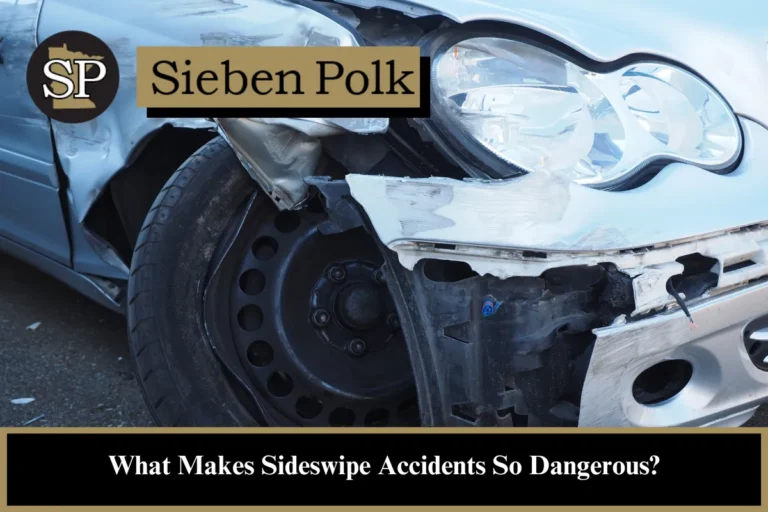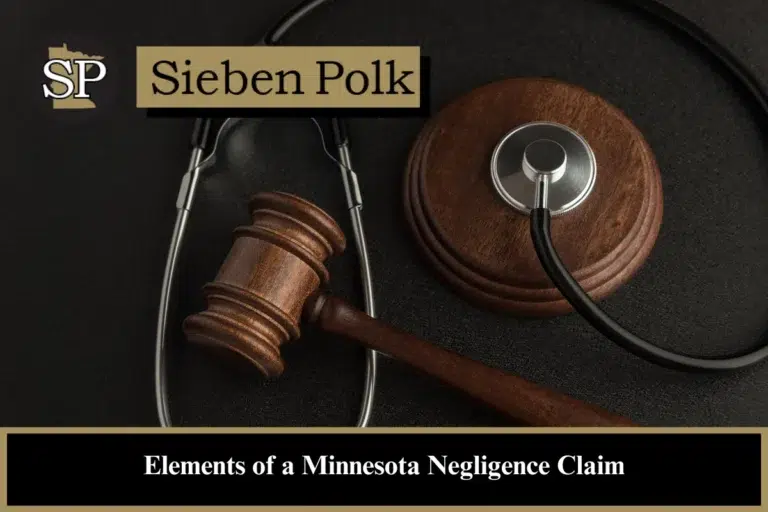If you’ve settled a personal injury claim with an insurer but later find that your medical bills or out-of-pocket expenses exceed your settlement, you may wonder if you can sue again. In most cases, signing a settlement agreement closes your case, but there are exceptions. Learn about when and why you might still have options to pursue additional compensation.
Navigate This Page
- Can You Sue After an Insurance Settlement?
- Can You Pursue More Compensation After Agreeing to Settle Your Injury Claim?
- Signing a Settlement Usually Closes a Case
- Potential Exceptions: When Can You File Suit After Settling?
- When a Settlement Can Be Overturned
- How Sieben Polk P.A. Can Help You with Your Settlement
- Why You Should Consult a Personal Injury Attorney Before Settling
- Related Readings:
Can You Sue After an Insurance Settlement?
What Happens After Signing a Settlement?
Once you sign a settlement agreement, you generally give up your right to file another lawsuit. This means that if your medical expenses increase or you face unforeseen complications, you typically cannot seek additional compensation from the at-fault party or their insurance company. Before agreeing to settle, consult with an attorney to ensure you understand the full implications.
Can You Pursue More Compensation After Agreeing to Settle Your Injury Claim?
The Impact of Unexpected Complications
Even if your initial recovery goes well, complications can arise later. You may need more treatment or surgeries, or your ability to work may be more limited than you initially thought. However, once you accept a settlement, you usually cannot seek further compensation. Here’s why.
Signing a Settlement Usually Closes a Case
What Does Signing a Settlement Agreement Mean?
When you accept a settlement, you agree to release the at-fault party from any further liability. The settlement is a contract where you accept a specific sum of money in exchange for forfeiting your right to sue for additional damages related to the accident. Once you sign, the case is typically considered closed by law.
Why It's Important to Consult an Attorney Before Settling
Before agreeing to a settlement, it’s crucial to work with an experienced personal injury lawyer to ensure you’re not being taken advantage of by the insurer.
Potential Exceptions: When Can You File Suit After Settling?
Filing Against Additional Liable Parties
If there are multiple at-fault parties in your case, you may still be able to file a lawsuit against other parties who were not part of your settlement agreement. For example, if the other driver was at fault but a defective product, like a malfunctioning airbag, contributed to your injury, you may pursue a claim against the manufacturer.
Minnesota’s Comparative Fault Law
Minnesota allows you to sue other parties as long as your fault in the accident is not greater than theirs. For example, if you are 30% at fault and your damages total $100,000, you could recover 70% of the total, or $70,000.
When a Settlement Can Be Overturned
Can a Settlement Be Invalidated?
Though rare, personal injury settlements in Minnesota can sometimes be overturned in certain circumstances, such as:
- Fraud or Coercion: If the settlement was signed under duress or fraudulent conditions, a court might allow you to challenge it.
- Lack of Mental Capacity: If you were not mentally capable of making a sound decision when you signed the settlement agreement, it might be invalidated.
How Sieben Polk P.A. Can Help You with Your Settlement
If you’ve signed a settlement but are concerned about your options, the attorneys at Sieben Polk P.A. are here to help. Our experienced team can review your case, advise you on potential legal options, and represent you in seeking additional compensation if applicable.
Why You Should Consult a Personal Injury Attorney Before Settling
Protecting Your Rights
Before accepting any settlement offer, consulting with an experienced personal injury attorney is essential to ensure that you are not leaving money on the table or accepting an unfair offer. Our team at Sieben Polk P.A. has decades of experience helping clients secure the compensation they deserve.
Schedule Your Free Consultation
Contact us today for a free consultation. We are here to ensure that you understand your rights and help you make the best decision for your future. Call (651) 437-3148 or contact us online.




